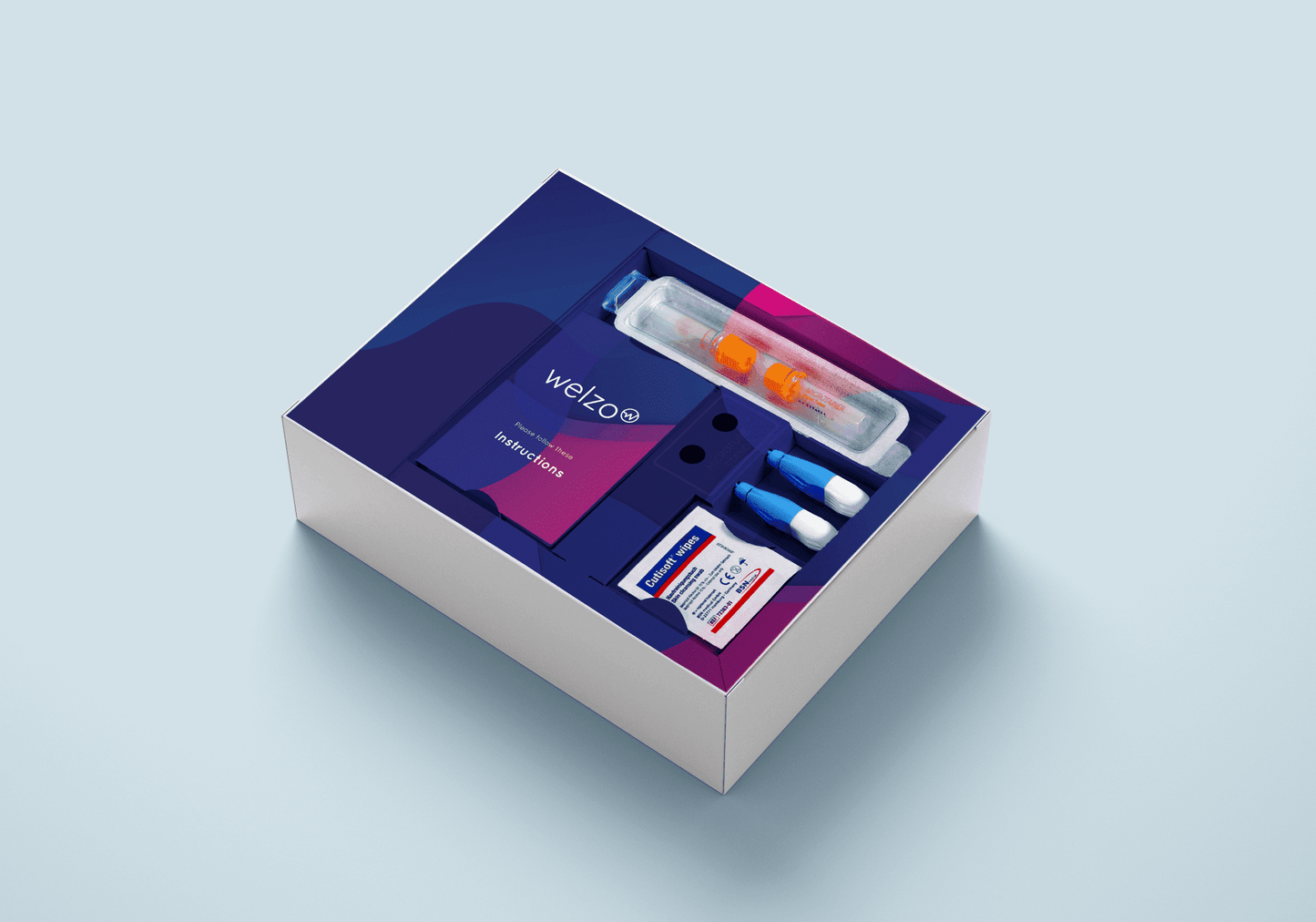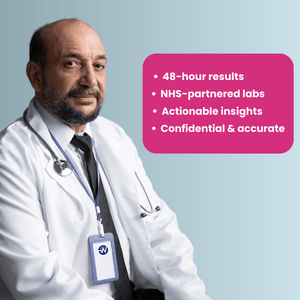Chlamydia and Gonorrhoea Test
£50.00
Sale price
£50.00
58 Reviews
Chlamydia is a sexually transmitted infection that can cause serious health problems if left untreated. This test can help you act quickly to have it treated further.
The Gonorrhoea Test will be able to detect traces of bacteria through a urine sample, providing a diagnosis of the condition.
Free next-day delivery
Results within 2 days
What does it test for?
- This test checks the presence of Chlamydia. Chlamydia is an STI that can often be symptomless.
The UK's Highest Rated Home Testing Provider
- Biomarkers
- Information
Chlamydia
Gonorrhoea (N.Gonorrhoea NAAT)
Symptoms
Additional Information
Additional Insight from Dr Sameer Nakedar, MBBS, MRCGP, PGCert
How to take the test
Statistics and Information on Chlamydia

60%
Of all Chlamydia cases are found in young adults
60% of all chlamydia cases in the UK are found in young adults and teenagers, mostly prevalent in the 15 to 25 year old age bracket.

70%
Of women do not display symptoms
70% of women and approximately 50% of men do not display symptoms when they have a Chlamydia infection. Therefore regular testing is essential in stopping the spread of Chlamydia.





How to take your Welzo Test
You're one step closer to discovering a healthier you! Taking your Welzo test from the comfort of home is simple and straightforward. Click the link below to learn more about how it works.





















 Rated Excellent by 26,523+ Reviews
Rated Excellent by 26,523+ Reviews